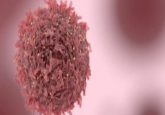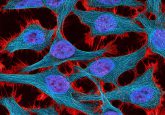Freezing Parkinson’s in its tracks

New drug targeting neuroinflammation could halt further neuronal loss in Parkinson’s disease.7187
Parkinson’s disease (PD) has a complex pathology, predominantly characterized by the loss of dopaminergic neurons in the substantia nigra, a structure in the midbrain. This loss is often accompanied by chronic neuroinflammation, dysfunctional mitochondria and the formation of -synuclein protein rich Lewy bodies. However, the exact mechanism that links all pathological factors is unknown.
A team of scientists from The University of Queensland (Brisbane, Australia) have identified a key immune system called the NLRP3 inflammasome which can be triggered by dopaminergic loss. They found a small molecule, MCC950, which targeted the NLRP3 system and halted further development of PD in animal models.
Researcher Trent Woodruff commented: “we found a key immune system target, called the NLRP3 inflammasome, lights up in Parkinson’s patients, with signals found in the brain and even in the blood. MCC950, given orally once a day, blocked NLRP3 activation in the brain and prevented the loss of brain cells, resulting in markedly improved motor function.”
This molecule shows promise as a new therapy for PD with the potential to stop the disease in its tracks. “We have used this discovery to develop improved drug candidates and hope to carry out human clinical trials in 2020,” added Woodruff.
Parkinsonian-like motor symptoms do not occur until approximately 60% of nigrostriatal neuronal degeneration therefore the neuronal loss is often too great to be reversed when a diagnosis can be made. Currently there are no therapies for PD that can prevent further neuronal loss, with most treatments targeted towards symptom management.
Drug companies typically treat neurodegenerative disorders by preventing neurotoxicity and stopping the accumulation of neurotoxic proteins. “We have taken an alternative approach by focusing on immune cells in the brain called microglia that can clear these toxic proteins,” explained researcher Matt Cooper. “With diseases of ageing such as Parkinson’s, our immune system can become over-activated, with microglia causing inflammation and damage to the brain. MCC950 effectively ‘cooled the brains on fire’, turning down microglial inflammatory activity, and allowing neurons to function normally.”
The study was recently published in Science Translational Medicine, the molecule is now being commercialized and will start with Phase 1 clinical trials in 2019.





